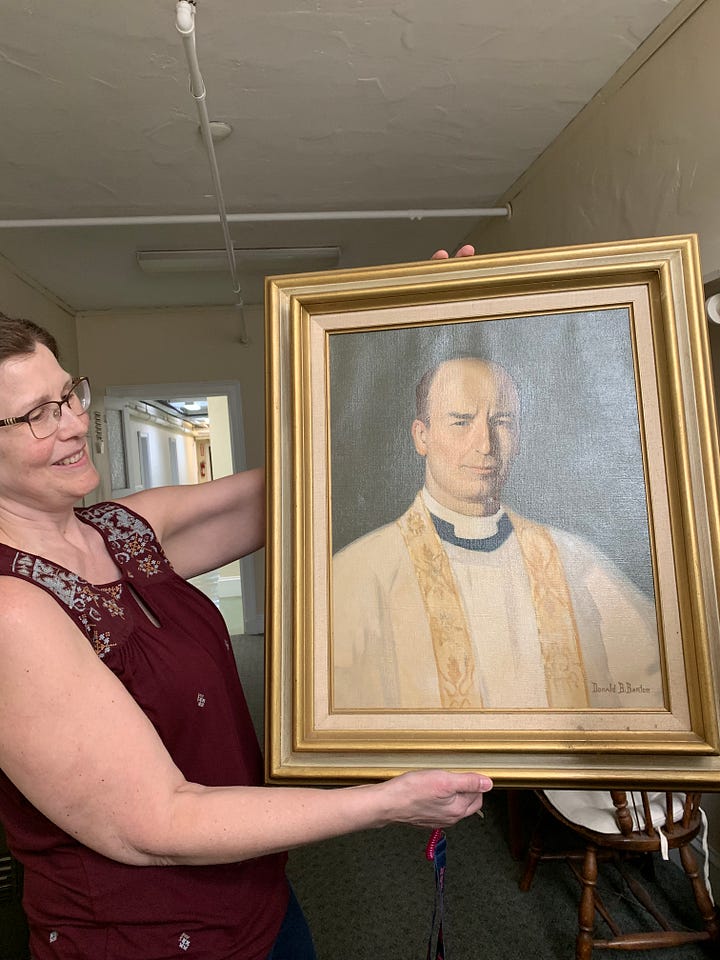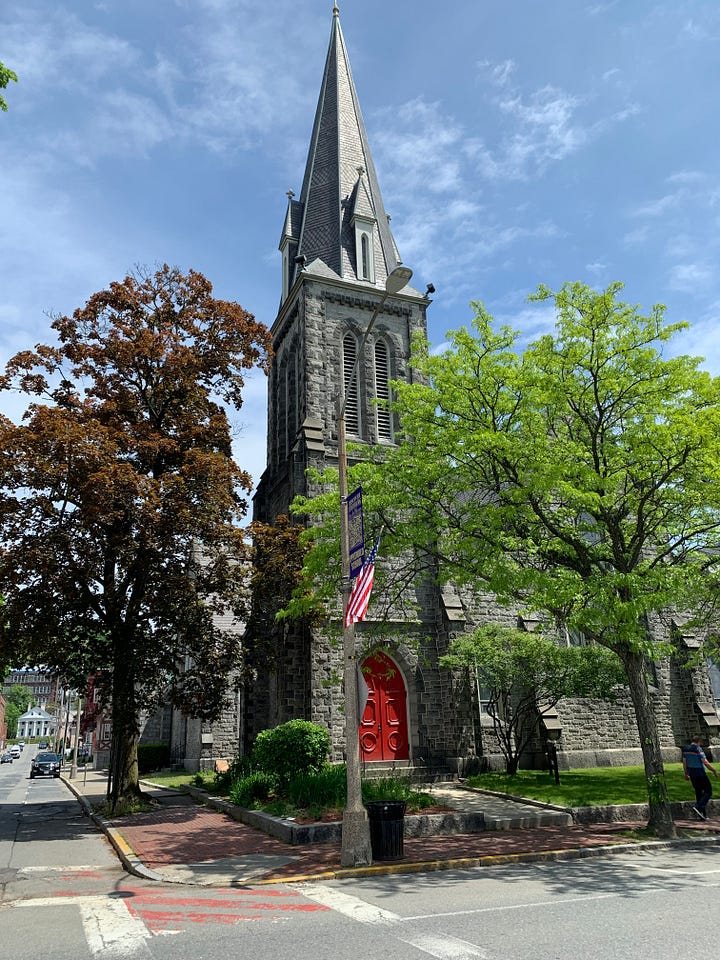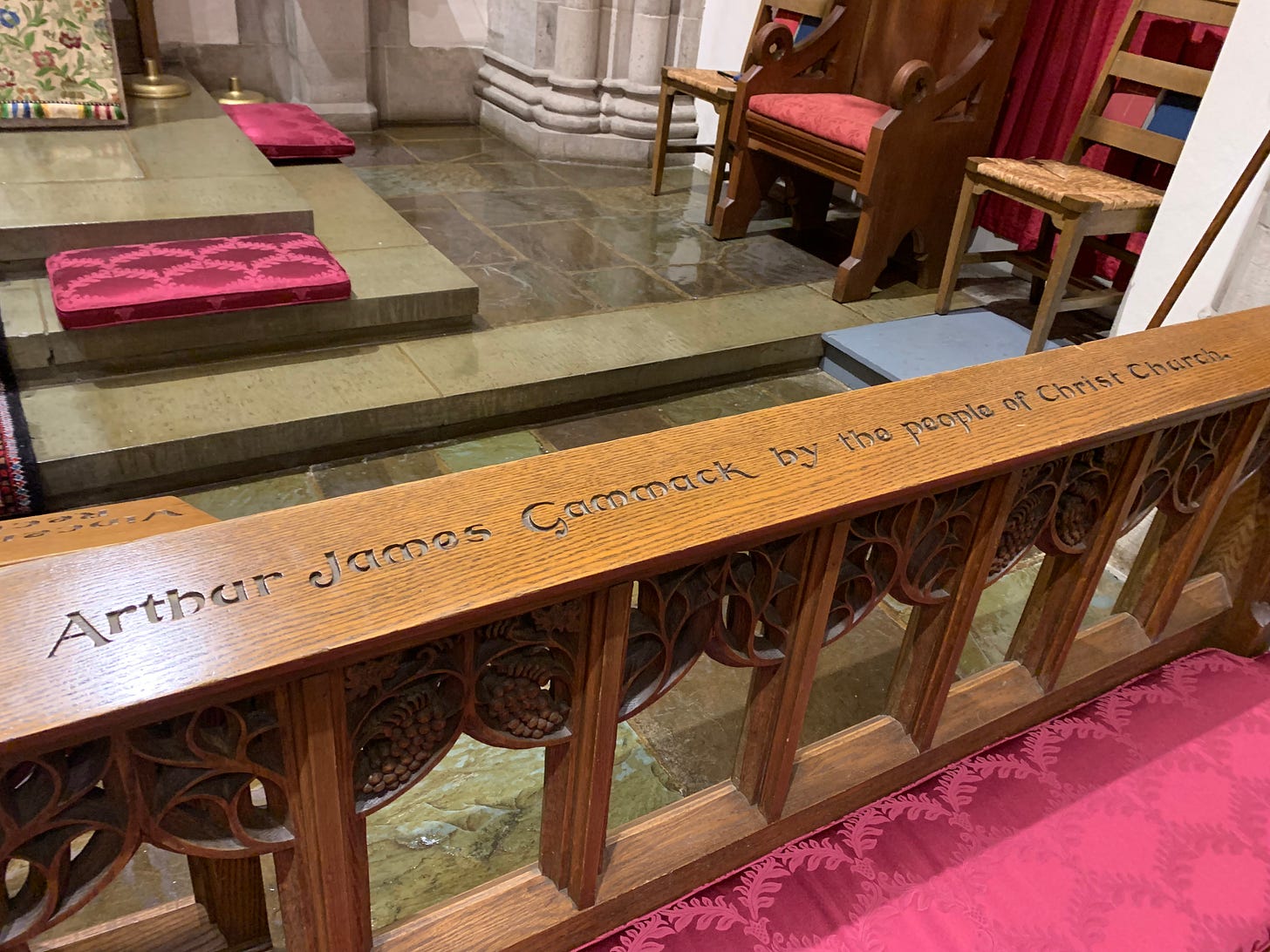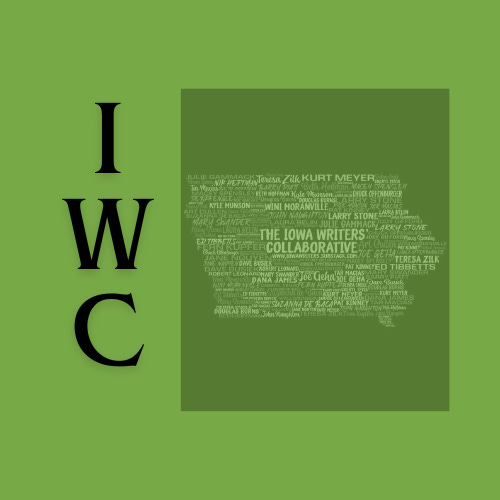I hadn’t intended to write another column this week, but I watched a video clip last night on X of a bulldozer destroying the campsite of homeless neighbors here in Des Moines.
I’ve contacted the person who posted the video for comment but have not heard back.
The following column is a mash-up triggered by the sight of the destruction of a fellow human being's few tangible possessions.
What is the bulldozer driver thinking today? Or the city officials who made the order? Will they pray before eating a Thanksgiving meal or this Sunday in church?
These images haunt me.
Thanksgiving in our family
Growing up, we rarely sat at the dinner table, except on holidays or when my folks hosted a dinner party.
When I was conceived, my parents were raising a girl, Katy, and a boy, Tom, and my folks thought that was the ideal-sized family. Katy was named Kathryn Elesa after my mother, Kathryn, and her mother, Elesa. Brother Tom was named after my uncle and father, Thomas Gordon Gammack. They had not intended to have three children, but I was a ‘happy accident’ conceived around Thanksgiving of 1949. I’ve often questioned the ‘happy’ part of that description.
They hadn’t given any thought to a name for me, so they put a variety of options on small pieces of paper and let the family dog select one. Thankfully, the mutt Browsie who raised me did not select ‘Clover.’
‘Julie’ had no special meaning, no family connection, and came from out of the blue, just like I had.
I watched that video clip last night, and this morning, I woke up thinking about my family and a memory of my dad carving the turkey (one of his few domestic tasks) before the moment we could dig into the mashed potatoes. We’d close our eyes, bow our heads, clasp our hands together, and he would say:
Bless, O Lord, this food to our use,
And us to Your service;
And make us ever mindful of the needs and wants of others.
Amen.
Growing up Episcopalian - sort of
I received mixed messages about religion and church. As the third child, I had a distinct advantage over my siblings, who had forged a dutiful trail of ‘doing what they were told’ unless they could get away with other things. By the time I was testing boundaries, my folks had relaxed into more of a ‘whatever’ role with me, even as a little kid.
So, on Sundays, when it came time for church, I realized that if those godawful, too-tight, high-gloss, patent leather shoes couldn’t be found, we might skip church.
Guess who hid them?
Today, squirming in church might be cause for a prescription to deal with ADHD, but back in my day, it earned a pinch.
In middle school, my parents thought my best friend and I were too dependent on one another and that we should develop other relationships. After sixth grade, we attended different schools, so they thought it was a good time to break the cycle of spending every weekend together.
Early on, I understood the idea of creating ‘workarounds,’ so my friend and I concocted a scheme to tell our parents separately that we wanted to join the church youth choir.
We weren’t the only ones with manipulative reasons for attending church. Right?
Soon, we were back spending Saturday nights together, so only one set of parents had to get us to church early on Sundays to suit up in our choir robes for the processional to the altar. It was hard for a couple of pre-teens to stifle laughter while watching the jowly choirmaster enthusiastically jiggle every ounce of flesh in this task.
Being in the church choir did not develop a sense of spirituality. Still, it did create opportunities to ride the bus downtown and hang out at Younker’s cafeteria or stand outside the glass-enclosed studios of KIOA radio to make faces at our favorite disc jockey, Hal Moore.
True disillusionment with religion took hold in my teen years as the civil rights and anti-war movements took over the lives of my generation and the organized religion I judged woefully out of touch.
That was my early take on religion, and it belies the long history I have on my father’s side of the family. I come from Episcopal priests with ecclesiastical ancestors in Scotland.
Had my glorious Aunt Ellen not been a woman, she would have followed in her father’s footsteps. However, as a woman, she had to settle for missionary work in Cuba, followed by a clerical job in the church.
My father’s father was Reverand Arthur James Gammack, a man I never met. I was told he died in a horseback riding accident while visiting parishioners.
My grandfather was a church leader who, in 1928, was tasked with revising the “Common Book of Prayer” and also proposed removing ‘thou shalt obey’ from the marriage vows. This was considered radical in his time.
Way to go, grandfather!
Curiously, I do not remember any other stories about this man, who, in recent years, I have learned, was revered in the church he built in Fitchburg, Massachusetts.
Richard and I were on a road trip along the East Coast a few years back when a sign on the Interstate indicated an exit for ‘Fitchburg’ coming up.
Fitchburg? Wasn’t that the town where my grandfather had a parish? We pulled off, found the town, and discovered the beautiful church.
Introducing myself to the secretary brought a look of shock to her face.
Gammack? Gammack?
And that’s when I learned, very late in life, that my grandfather was a much-beloved churchman who built a community in a working-class town that needed one and, in so doing, had a statue erected in Memorium after his untimely death.
I wondered about genetic threads showing up in various ways throughout generations.
I have felt intense spiritual experiences in the core of my being, which at times was labeled and treated as a nervous breakdown or bipolar disorder. Medication was forced into my system to chase away thoughts of oneness with the universe.
It’s in my DNA, and it is often, but not always, present.
I may have been an accident conceived 74 years ago today, but I feel this kinship to blood ancestors I will never know.
If mental illness is a familial trait, it seems that preaching sermons about God could be a safe career choice. When the church secretary showed me an old newspaper clipping of my grandfather preaching from the back of a pickup truck—not exactly the style of the stereotypical Episcopalian—I wondered if my grandfather, and his before him, shared these spiritual experiences of light, love, and the universal human experience.
I don’t identify this as ‘god’ or ‘diety’ or use words that personify the experience. It’s not a feeling; it’s a knowing within me that we are all one.
I sure felt it last night when I watched the video clip of a homeless man looking on as his tent, and that of others in similar circumstances were being destroyed.
I do not know their stories. I wish I did. I know what living in a reality that doesn’t jive with the norm is like. I know what it is like to love someone with schizophrenia and others with bipolar disorder, who, but for modern medication and a support system, could be unemployable and forced by circumstance to live in the woods in a tent.
There is a buried piece within me that strives in this imperfect world to be thankful for all that I have and all that I am and be mindful of the needs and wants of others.
The incense, readings, pageantry, and sermons didn’t stick in my mind, but the prayer my father said on this day, reminding us about the needs and wants of others, sure did.
Amen.




The Iowa Writers’ Collaborative
writes a very important column here on Substack as a part of the Iowa Writers’ Collaborative. She calls it 988:Mental Healthcare in Iowa. Kali works her tail off, bringing readers stories about mental illness and the healthcare system in hopes of shedding light on a topic that impacts about 25% of Iowans. If possible, follow her work, and please become a paid subscriber to her column. What she writes about takes an inordinate amount of time and effort, with little reward. Kali is a beautiful soul touched deeply by the story of a neighbor's family whose son could not get the care he desperately needed. They paid the ultimate price with their lives while the very sick son finally got the medication he needed in prison. For those who don’t know or have a personal experience of mental illness, trust me: it is exhausting to work through the bureaucratic mental health care system with a revolving door of providers, red tape, a lack of beds, funds, compassion, understanding, and options.
Those who see a homeless person and think, why-don’t-they-just-get-a-job, do not understand the reality of mental illness. Or of being poor.
Do you know that anyone not extremely wealthy must rely on Medicaid to receive medications costing hundreds of dollars a month? And those on Medicaid are limited to how much they can earn, even if they could? It is an impossible trap.
Holiday Party
Hey, if you are a paid subscriber to any of our columns, you are invited to a holiday party on December 13 from 5 to 8 p.m. If you are from out of the metro area and need a place to stay, we have a special room rate at a nearby hotel (you must book by Friday, November 29).
Details can be found on the RSVP form. Thanks for your support:






I just did a quick Google search on X and saw a local TV station talking about the city of Des Moines working on 'cleaning up' homeless camps.
Cleaning up?
Talk about a PR spin. Good grief.
I am shocked at the treatment and struggles of the homeless in Des Moines. We have a 33 year old son with mental health issues, that has been lucky enough to find in-bed treatment (never close to home but at least in state!) when he needed it. I read Kali White VanBaale's piece that started with a warning sign about public sleeping on public land. I guess that okays the bulldozer approach?! I wish more people had some empathy and compassion as witnessed in your father's prayer (and your writings). Thanks for sharing your story.